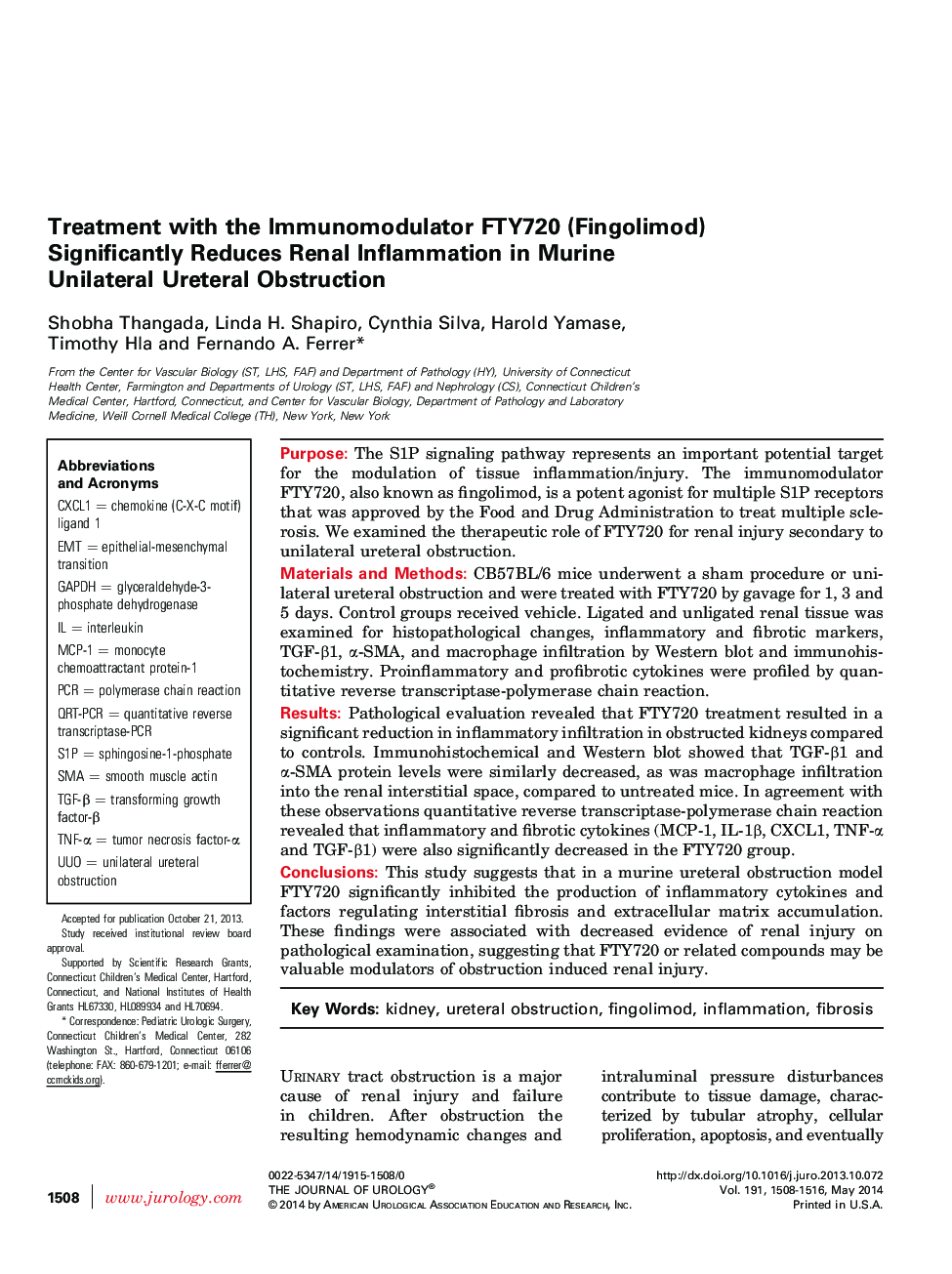| کد مقاله | کد نشریه | سال انتشار | مقاله انگلیسی | نسخه تمام متن |
|---|---|---|---|---|
| 3861978 | 1598905 | 2014 | 9 صفحه PDF | دانلود رایگان |

PurposeThe S1P signaling pathway represents an important potential target for the modulation of tissue inflammation/injury. The immunomodulator FTY720, also known as fingolimod, is a potent agonist for multiple S1P receptors that was approved by the Food and Drug Administration to treat multiple sclerosis. We examined the therapeutic role of FTY720 for renal injury secondary to unilateral ureteral obstruction.Materials and MethodsCB57BL/6 mice underwent a sham procedure or unilateral ureteral obstruction and were treated with FTY720 by gavage for 1, 3 and 5 days. Control groups received vehicle. Ligated and unligated renal tissue was examined for histopathological changes, inflammatory and fibrotic markers, TGF-β1, α-SMA, and macrophage infiltration by Western blot and immunohistochemistry. Proinflammatory and profibrotic cytokines were profiled by quantitative reverse transcriptase-polymerase chain reaction.ResultsPathological evaluation revealed that FTY720 treatment resulted in a significant reduction in inflammatory infiltration in obstructed kidneys compared to controls. Immunohistochemical and Western blot showed that TGF-β1 and α-SMA protein levels were similarly decreased, as was macrophage infiltration into the renal interstitial space, compared to untreated mice. In agreement with these observations quantitative reverse transcriptase-polymerase chain reaction revealed that inflammatory and fibrotic cytokines (MCP-1, IL-1β, CXCL1, TNF-α and TGF-β1) were also significantly decreased in the FTY720 group.ConclusionsThis study suggests that in a murine ureteral obstruction model FTY720 significantly inhibited the production of inflammatory cytokines and factors regulating interstitial fibrosis and extracellular matrix accumulation. These findings were associated with decreased evidence of renal injury on pathological examination, suggesting that FTY720 or related compounds may be valuable modulators of obstruction induced renal injury.
Journal: The Journal of Urology - Volume 191, Issue 5, Supplement, May 2014, Pages 1508–1516